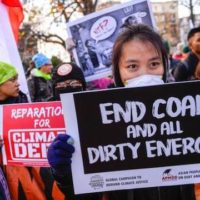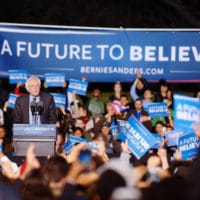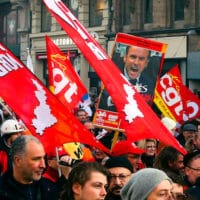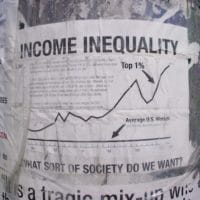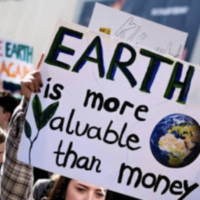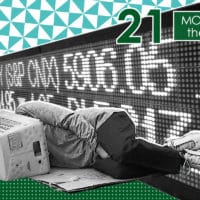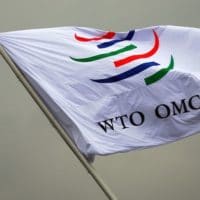-
Trump touts biodefense strategy but slashes funding to detect and combat outbreaks like coronavirus
t the end of January, at a time when the coronavirus outbreak that began in China was dominating international headlines, The White House announced it was forming a new task force to address the growing crisis, one headed by the secretary of health and human services, Alex Azar.
-
The problem with private property
The conceptualisation of property in a economic sense harks back to John Locke. These days property is commonly separated into four categories.
-
Politicizing water in Chile
Chile is today in the midst of an unprecedented constituent process 30 years after the return of democracy, where the possibility of a new constitution has opened a discussion about what sort of country we want, and which rights should be enshrined in the drafting of this fundamental document.
-
Democracy in Focus: Follow the dark money…
Greater Britain, as we might call it, has over the past 70 years transformed itself from the largest-ever land empire to a sprawling financial one: a network of tax havens and money laundries stashing cash for the world’s oligarchs, mafiosi, gangsters and hedge funds.
-
If Bloomberg wants to buy an election, he should run as a Republican against Trump—not sabotage Democrats
The mega-billionaire should be running against Trump in the Republican primaries, not as a Democrat. If he actually cared about this country more than stroking his massive ego that is exactly what he would be doing.
-
Health check: U.S. manufacturing is in trouble
President Trump is all in, touting his success in rebuilding U.S. manufacturing. For example, in his state of the union address he claimed: We are restoring our nation’s manufacturing might, even though predictions were that this could never be done. After losing 60,000 factories under the previous two administrations, America has now gained 12,000 new […]
-
No excuses–we have to shut down the fossil fuel industry
In the face of an ecological catastrophe as enormous and terrifying as this season’s bushfires, you might think that policy might begin to shift, as those in power face up to the reality of human-induced climate change. But you’d be wrong.
-
The Iowa fiasco and the Democrats’ shadowy plot to stop Bernie
Yogi Berra, the great Yankees catcher, had the memorable line, “It’s like deja vu all over again.” Bernie Sanders supporters might have been thinking the same thing after the fiasco of the Iowa caucuses.
-
Rosa Luxemburg and debt as an imperialist instrument
In her book titled The Accumulation of Capital, published in 1913, Rosa Luxemburg devoted an entire chapter to international loans in order to show how the great capitalist powers of the time used the credits granted by their bankers to the countries of the periphery to exercise economic, military and political domination on the latter.
-
In France’s longest protests since 1968, striking workers continue the fight against neoliberalism
From bus drivers to ballet dancers, workers from across France have taken to the streets in opposition to President Emmanual Macron’s attempts to reshape the country into a U.S.-style neoliberal state.
-
When it comes to pay, U.S. business leaders are world champs
U.S. CEOs not only draw the highest salaries (including bonuses and equity awards, etc.), but they are king of the hill when it comes to lording it over their employees, as illustrated by the high ratio of CEO to worker earnings.
-
The people of Colombia are cracking up the walls of war and authoritarianism
The protests that started with the national strike called by Colombia’s central union on November 21 to protest pension reforms and the broken promises of the peace accords have persisted for two months and grown into a protest against the whole establishment. And the protests have continued into the new year and show no signs of stopping.
-
World First: Bank of England unveils climate stress test to banks and insurance companies
Tackling climate change isn’t just about replacing fossil fuels with renewables, or planting more trees. It’s about confronting climate stress across society.
-
Jeff Bezos donates three minutes’ income to help Australia fight wildfires
The donation would be equivalent to someone who earned $500 per week announcing on social media that they had just donated five cents to help tackle the blazes.
-
‘Grévolution’: first round of a general strike
Since the middle of December, France has been gripped by a wave of large scale strikes. In this article the French collective Plateforme d’Enquêtes Militantes analyses the composition of the strikes, and the potential for its continued escalation.
-
Covering the Paradigm Crisis with Alexandra Scaggs
Alexandra Scaggs joins Money on the Left to discuss her experience covering the ongoing paradigm crisis in mainstream economics, central banking and finance—and why leftists should be paying close attention.
-
End of the free trade myth
“Is that a big deal?”, some may ask. It is to those who have pushed for achieving the far-reaching liberalisation of trade in an unequal global order, first under the General Agreement on Tariffs and Trade (GATT), and then under the auspices of the agreements that established the WTO and defined and expanded its remit.
-
If you want peace, you get war; if you want war, you get rich
A quarter century ago, Victoria Sandino Palmera joined the Revolutionary Armed Forces of Colombia–People’s Army (FARC-EP). She had previously been a militant in the Communist Party and–when FARC-EP was above ground in the 1990s–joined the Patriotic Pole. But the repression of what she calls the ‘traditional oligarchy’ sent her back to the jungle over and over again. Victoria Sandino made it clear that she was not keen on this war. ‘We didn’t take up weapons because we felt the need to use violence’
-
Public housing as the front line of Green New Deal
The AOC-Sanders initiative seeks to flip the racist script by revaluing public housing and its remaining occupants.
-
A wealth tax: because that’s where the money is
The bank robber Willie Sutton, when asked by a reporter why he robbed banks, is reputed to have answered, “Because that’s where the money is.” Which brings us to a wealth tax.







